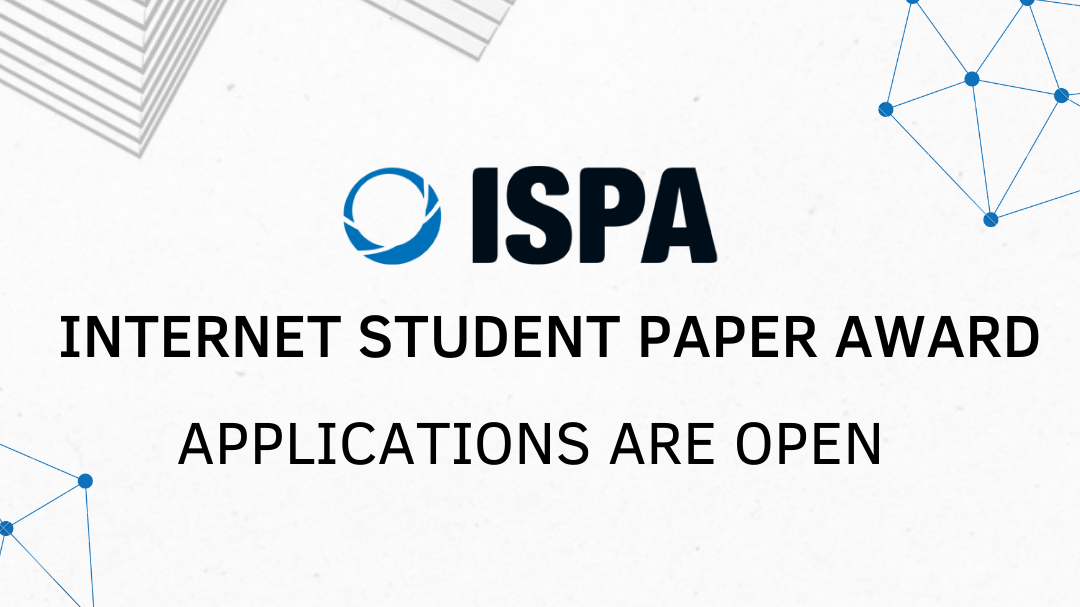
by PIBrussels | Jun 18, 2024 | Uncategorized, Uncategorized, Uncategorized, Uncategorized
2024 ISPAwards winner Erica Compagnone receives her award from Henri-Jean Pollet, President of ISPA Belgium.
The new European cooperation system for the exchange of electronic evidence in criminal matters: a balance between the general interest of justice and the fundamental rights to privacy and data protection.
The advent of cyberspace has brought several changes in everyday life as well as in the investigation and prosecution of crimes. In the criminal law field, these new technologies have the potential to provide important digital traces which play an ever-growing role in criminal proceedings. However, while digitization provides more effective and faster tools for detecting criminals, gathering electronic evidence can be a complex process, as it often involves obtaining data from multiple sources, dealing with encryption or other security measures, and ensuring that the data is admissible in court. Confronted with the inefficiency of existing legal frameworks, which were inadequate for addressing the challenges of the new digital age due to lengthy procedures and the potential risk to the fundamental rights of involved parties, the European Commission proposed the e-Evidence Package in 2018. This initiative includes a Regulation and a Directive aimed at establishing a model for direct collaboration between public authorities and private service providers.
In a comparative perspective with existing legal instruments and in light of the jurisprudence of the CJEU and the ECtHR, it was important to assess whether an instrument that prioritizes efficiency and law enforcement interests above fundamental rights could weaken the level of protection guaranteed to the fundamental rights to privacy and protection of personal data.
Starting from the new categorization of data proposed by the European Commission, the study explored the divergences, the temporary innovative character of the draft Regulation, and the European legislator’s change in the final text. It assessed to what extent the European legislation could cope with the new technological and judicial reality and how far a common transnational cooperation mechanism may be the most desirable alternative. The e-Evidence Package, in fact, envisages a mechanism that is very well-data driven to ensure an effective direct cooperation system with a comprehensive set of safeguards of individuals’ fundamental rights to privacy and data protection, depending on the sensitiveness of the data collected. However, since the most relevant and productive service providers are based outside the EU, the introduction of the e-Evidence Package may not be sufficient for all the potential scenarios. The EU should set coherent international rules for cooperation in criminal matters with the US and other democratic countries to ensure better reform in criminal law cooperation and its success. The study endorsed the idea that the e-Evidence Protocol of the Cybercrime Convention represents the best option for establishing this cooperation. In contrast, an EU-US cooperation based on a Cloud Act will easily turn to a US-centric view of data transfer, which may not adequately consider the expectations of other countries and will primarily serve the needs of US law enforcement agencies.

by PIBrussels | Aug 17, 2023 | Uncategorized
Have you written an undergraduate or graduate thesis on a topic related to the Internet this academic year? Is this still fresh in your mind?
Then find your pen again and compete for the ISPAwards!
What is it?
This prize is awarded every year by ISPA, the association representing the Belgian Internet industry. Grab your chance to show your business card to the sector and who knows, maybe you will go home with €500.
How do I participate?
Send a paper of maximum 2,500 words, in English, French or Dutch, based on your thesis or bachelor’s thesis to secretariat@ispa.be . The paper should be related to content moderation, data protection, privacy, emerging technologies or any other internet related topic.
Ok, by when?
The deadline is Friday the 20th of October, 2023. The winner will be announced by the beginning of 2024.
And what exactly is ISPA?
ISPA Belgium brings together the entire ecosystem of the internet industry in Belgium and includes companies that make the internet work, such as access providers, hosters, transit providers, data centers and platforms.The association ensures that the voice of the Internet community is heard and understood by policymakers and the general public, to enable the creation of digital-friendly, future oriented and coherent policies in Belgium.

by PIBrussels | May 4, 2023 | Uncategorized
Dishani Sen receives her ISPAward from Henri-Jean Pollet, president of ISPA Belgium.
Using Digital Trace Data to Generate Representative Estimates on Disease Prevalence (COVID-19 Infections) in Belgian Municipalities
Is it possible to predict the area-level prevalence of COVID-19 infections in Belgium by analyzing
self-reported symptoms on Twitter? Relying solely on hospital and clinic-focused studies has its limitations,
so researchers have been exploring the potential of digital trace data to gain a better understanding of
the prevalence of COVID-19 and the symptoms experienced by infected individuals.
There’s an optimistic future in the possibility that monitoring social media data is a viable strategy for
public health surveillance. It is a critical competency that public health organizations are investing in in
order to receive real-time signals of pandemic upticks and spread. However, social media data is often
unorganized, and a non-representative sample of the population due to demographic skew in usage
frequencies and access rates. As such, any direct estimate from a platform like Twitter is likely biased
toward certain demographics. With this in mind, an attempt is made to use tweets (digital trace data) to
make inferences about the granular level prevalence of COVID-19 infections in Belgium.
This research is about generating estimates of the incidence of COVID-19 infections, at the municipality level,
by using Multilevel Regression Post-Stratification (MrP) to account for sampling biases in the social media
sample. At first, tweets are obtained from users based on keywords derived from previous research, e.g.,
tweets mentioning fever, cough, loss of taste, fatigue, etc. Then, key demographic and geographical
features of interest are extracted using the M3 deep learning pipeline, as well as simple self-reported
characteristics, effectively transforming the unstructured twitter sample into a survey-like object. Finally,
based on these demographic features and census characteristics, a mixed effects logistic regression model
with post-stratification according to the Belgian census is proposed to forecast the number of infected
individuals on a particular day. This study contributes to the proof of concept of a complete end to end
pipeline to perform real time predictions of disease prevalence at a granular level in a population using
social media data. Through this POC, contributions are made to three core elements: collecting
mass-scaled tweets, extracting demographic features and assigning a location value to convert
unstructured digital data to survey-like objects, and using a multi-level regression model with
post-stratification to make real-time predictions on the population using digital trace data.
The study’s overall hypothesis was that the area-level prevalence of COVID-19 at the municipal level can
be modeled using MrP on features extracted from aggregated tweets to generate representative estimates.
The results of the study are similar to actual data on the prevalence of COVID-19 infections in Belgium
for a reference period by a correlation of 93%. This strong positive correlation is a very promising
indication that there is an enormous signal in the Twitter data and that, this methodology has high potential
in digital epidemiology.

by PIBrussels | Jan 11, 2023 | Uncategorized
Have you written an undergraduate or graduate thesis on a topic related to the Internet this academic year? Is this still fresh in your mind?
Then find your pen again and compete for the sixth ISPAward!
What is it?
This prize is awarded every year by ISPA, the association representing the Belgian Internet industry. Grab your chance to show your business card to the sector and who knows, maybe you will go home with €500.
How do I participate?
Send a paper of maximum 2,500 words, in English, French or Dutch, based on your thesis or bachelor’s thesis to secretariat@ispa.be . The topic of the paper should be related to content moderation, data protection, privacy, artificial intelligence or emerging technologies.
Ok, by when?
The deadline is Friday the 20th of October, 2023.
And what exactly is ISPA?
ISPA Belgium brings together the entire ecosystem of the internet industry in Belgium and includes companies that make the internet work, such as access providers, hosters, transit providers, data centers and platforms.
The association ensures that the voice of the Internet community is heard and understood by policymakers and the general public, to enable the creation of digital-friendly, future oriented and coherent policies in Belgium.

by PIBrussels | May 24, 2022 | Uncategorized
Loni Riskin receives her ISPAward from Henri-Jean Pollet, president of ISPA Belgium.
Doping control and data protection might seem topics not that closely related to each other. However, the GDPR applies to a large part of the data processing taking place in the anti-doping process. A lot of sensitive data is being processed in the context of doping control. Yet, WADA’s World Anti-Doping Code (WADC), applied by more than 700 sport organizations, still falls short in terms of GDPR compatibility.
A legal analysis of the GDPR and WADC has shown several points of conflict. For example, the WADC defines different grounds based on which sensitive data can be processed, such as explicit consent. However, the GDPR requires that when information is processed based on explicit consent, this consent needs to be ‘freely given’. Yet, if an athlete does not want to provide their consent, the WADC prescribes harsh sanctions and negative consequences for the athlete. It is therefore hard to classify this consent as ‘freely given’, since athletes could feel obliged to give consent.
Furthermore, WADA requires the automatic and mandatory publication on the internet of all anti-doping violations, including the name of the athlete and the sanctions imposed, for a period of at least one month. This however does not seem to be conform the GDPR’s proportionality principle. WADA sees this publication as necessary for athletes to not take on another role in sport, but less intrusive measures such as a certificate of good conduct, which these athletes wouldn’t be able to provide, can fulfill this role.
These are just a few examples, but they show that a more far-reaching adaptation of the WADA documents to the GDPR remains desirable. However, even though they agree with some adjustments, interviews with athletes, coaches and sport federations have shown that they think it is good that some anti-doping rules are so intrusive, since it scares off other athletes to take doping. They fear that if the current measures are adjusted to be more GDPR-compliant, this will lower the threshold to doping violations and make doping controls more difficult. So while this research answered a lot of questions, the question still arises of how to find measures that are both more in line with the GDPR and considers the comments made by athletes and sports federations.







